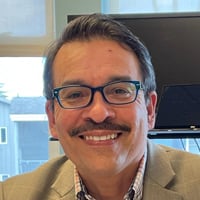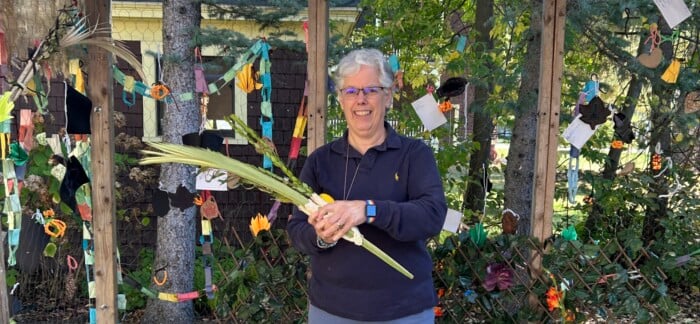Essay: Investing in development of diverse leaders pay dividends
We know the most effective way to develop a new generation of business leaders and entrepreneurs who represent any marginalized group in the United States is for young people to see high-profile C-suite executives, innovators, entrepreneurs and venture capitalists who look like them.
Representation communicates not only what is possible, it emboldens people to dream big. Today, however, the clear majority of the nation’s (and New Hampshire’s) business leaders are white men.
While outcomes might depend largely on boards that appoint executives and employers who serve as gatekeepers throughout one’s career, colleges and universities have a role to play in preparing young people to build their experience, fine-tune their business acumen and ultimately develop the confidence they need to ensure employers receive a diverse selection of candidates for top roles.
Colleges and universities are well positioned to support a more diverse pipeline of future leaders by exposing students to entrepreneurs who look like them, highlighting existing success stories, by hosting guest lectures, workshops and panel discussions. Just as they must see diversity in professional leadership roles represented, students must also be exposed to the experience of leadership.
Higher education institutions can accomplish this by creating leadership development programs that are inclusive and that support BIPOC (Black, Indigenous and other people of color) students and other underserved groups. These programs can teach students the skills they need to grow into leadership roles and receive adequate compensation. This means advanced mentorship, extracurricular clubs, paid internships and non-menial jobs that set high expectations and entrust students to make executive decisions.
Oftentimes, colleges and universities create similar opportunities that are offered to all students, yet they wonder why BIPOC students and other underserved groups don’t take advantage of them. As a result, good-intentioned leadership programs often reinforce the status quo and serve students who are already well represented, rather than serving the students who could most benefit from access to additional support.
At Plymouth State University’s IDEA (Inclusion, Diversity, Equity and Access) Center, we’ve created two programs that develop underserved students into future leaders; our IDEA Ambassadors program and our Diversity Scholars program.
The IDEA Ambassadors program offers a paid fellowship to undergraduate students to gain meaningful skills for both leadership and ownership. It was designed to prepare students to become not only business managers but business owners. These students hold office hours at the IDEA Center and work on developing flagship projects like diversity education sessions, podcasts, social media and a student-led speaker series called “Empower Hour” where young people share stories about their backgrounds. This program helps students develop confidence and leadership skills by encouraging them to take initiative and personal ownerships of projects, while also earning a decent wage.
 Generally speaking, on-campus student employment has been linked to higher retention and graduation rates, leading most institutions to prioritize hiring students for various roles.
Generally speaking, on-campus student employment has been linked to higher retention and graduation rates, leading most institutions to prioritize hiring students for various roles.
While most colleges and universities offer student employment opportunities, I’ve witnessed many missed opportunities. On-campus employment options for students are often designed to lighten the load for the full-time professional staff. Students in these roles often perform simple tasks like answering phones and printing out paperwork.
While these tasks are essential to business operations, if we only hire students for menial jobs that lack opportunities to use critical thinking skills, we are doing them a disservice. PSU’s Academic and Career Advising Center has been instrumental in ensuring our on-campus employment program is meaningful for the students as well as the offices that employ them.
The other program we’ve created at PSU that has proven successful is our Diversity Scholars program. This program is designed to support underserved, first-year students academically, socially and professionally. Diversity Scholars receive an annual $1,000 scholarship to help offset the cost of living on campus, and they are offered the opportunity to move onto campus two days earlier than the rest of the first-year students to allow them time to acclimate and connect with other Diversity Scholars.
These students receive mentorship and advising from IDEA Center staff and student leaders throughout the duration of the up-to-four-year program, and they are encouraged to participate in monthly IDEA Center workshops and lectures (developed and coordinated by our IDEA Ambassadors) by guest speakers from within our campus and beyond. Participating students have opportunities to work with the IDEA Center to help advance inclusivity and equity across our campus community.
Internships and mentorship are other ways in which we can nurture and develop future diverse leaders, yet both opportunities are often lacking.
Internships offer students valuable “real-world” experience in their chosen fields, yet many internships are unpaid or offer minimal compensation, which presents a significant challenge for many college students, especially underserved students who do not have the option of forgoing wages. Institutions, businesses and organizations that welcome student interns must do more to offer paid internship opportunities.
Mentorships must go beyond the remedial and “interventional” programs offered at some universities. If we only provide underserved students with basic skills and expect them to figure out the rest on their own, we make it much harder for them to succeed. Instead, we must dare them to push the envelope and encourage them to become role models, in the highest echelons of industry, for the next generation. We can do this by being the opposite of gatekeepers — by challenging them, encouraging them and opening as many doors for them as possible.
As a Hispanic man who was raised by a single mom, I have been fortunate to have strong personal and professional role models and mentors who have helped me develop the skills, experience and confidence to achieve my career goals. Because people believed in me and helped me see that leadership could be a reality for me, I have had the confidence to pursue opportunities such as my current role at Plymouth State University.
By creating intentional and meaningful opportunities for our most underserved students to develop the skills and confidence they will need to pursue and achieve their career and life goals, we will all win.
This article is featured in the spring 2024 issue of 603 Diversity.
603 Diversity’s mission is to educate readers of all backgrounds about the exciting accomplishments and cultural contributions of the state’s diverse communities, as well as the challenges faced and support needed by those communities to continue to grow and thrive in the Granite State.













